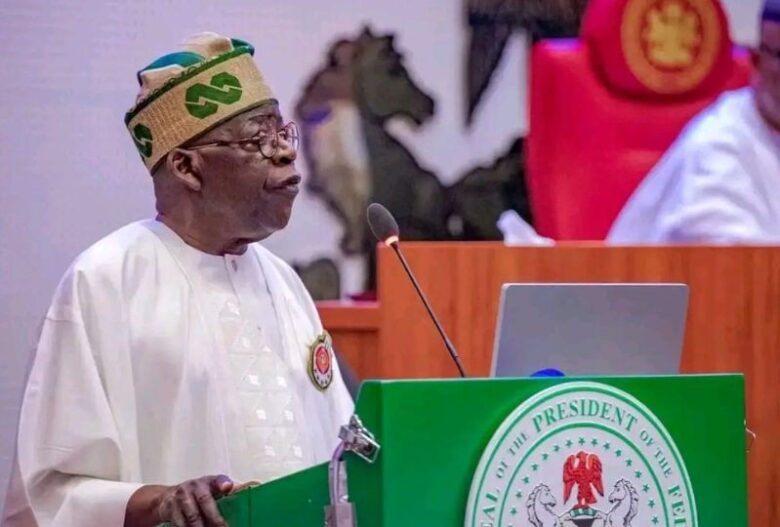Nigerian president, Bola Ahmed Tinubu, has written the Senate, seeking for consideration and subsequent approval, injection of N6.2 trillion into the N27.5 trillion 2024 budget.
The President of the Senate, Senator Godswill Akpabio who read at plenary, said that President Tinubu specifically seeks for withdrawal of N3.2 trillion from the Consolidated Revenue Fund, for capital expenditure.
If the requested N6.2 trillion is injected into the N27.5 trillion 2024 budget, the budget size will increase to N33.7 trillion.
President Tinubu in the second leg of the request as contained in the letter is seeking the withdrawal of another N3trillion from the consolidated revenue fund for additional recurrent expenditure for the year ending on the 31st day of December 2024.
Tinubu in the letter also seeks an Act to amend the Finance Act, of 2023, to impose a windfall tax on banks and to provide for the administration of the tax and matters related thereto.His request, aimed at ensuring a fair taxation policy, seeks to address the profits banks accrue due to fluctuations in foreign exchange rates.
This, he said, is to fund capital infrastructure development, education, health care access and public welfare initiative
“Furthermore, the proposed amendments to the Finance Acts 2023 are required to a one-time windfall tax on the foreign exchange gains realised by banks in their 2023 financial statements to fund capital infrastructure development, education, and healthcare as well as welfare initiatives all which are components of the Renewed Hope Agenda,” Tinubu said.
According to Nairametrics, top Nigerian Banks raked in a profit of N3.3 trillion in 2023 mostly arising from forex revaluation gains.
In 2023, the top 7 local banks raked in N2.48 trillion while in 2024 first quarter they raked in a whopping N882.9 billion.
Background of 2024 Budget
Last November, President Tinubu presented a N27.5 trillion 2024 budget to a joint session of the National Assembly at the temporary chamber of the House of Representatives.
About three weeks later, the two chambers passed the budget with an increase of about N1.2 trillion to make the budget a total of N28. 7 trillion.
In the bill passed, the sum of N1.74 trillion was earmarked for statutory transfers, N8.27 trillion for debt servicing, N8.76 for recurrent expenditure and N9.99 trillion for capital expenditure.
The Senate said that to accommodate further requests from the Executive for additional funding, the Committee on Appropriation made some adjustments to the bill.
Some of the adjustments made include foreign exchange differential, increase of Government-Owned Enterprises’ (GOEs’) revenue, GOE’s personnel reduction, Service Wide vote (wage adjustment) and reduction from Service Wide.









Got a Question?
Find us on Socials or Contact us and we’ll get back to you as soon as possible.